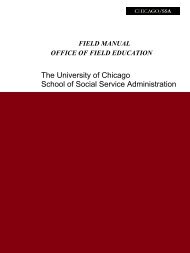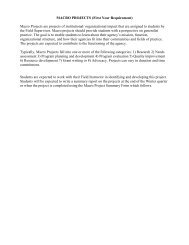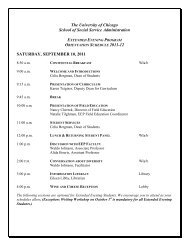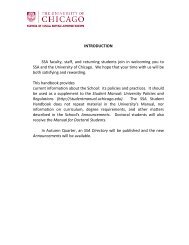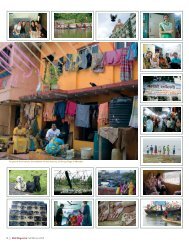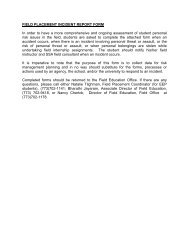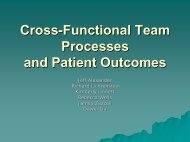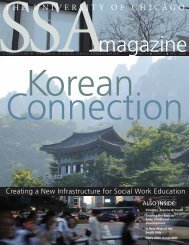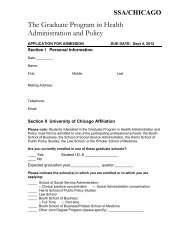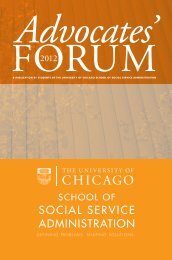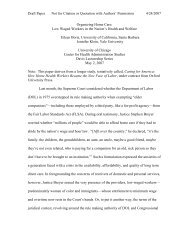2004 - School of Social Service Administration - University of Chicago
2004 - School of Social Service Administration - University of Chicago
2004 - School of Social Service Administration - University of Chicago
Create successful ePaper yourself
Turn your PDF publications into a flip-book with our unique Google optimized e-Paper software.
UNDOCUMENTED IMMIGRANTS<br />
UNDOCUMENTED STUDENTS IN THE UNITED STATES<br />
Undocumented students face unusual and complicated circumstances. They<br />
are typically acculturated to American society, have lived in this country most<br />
<strong>of</strong> their lives, speak English, consider themselves Americans, have succeeded in<br />
school, and are culturally competent in American customs, but are not fully<br />
members <strong>of</strong> society because <strong>of</strong> their immigration status (Suárez-Orozco and<br />
Suárez-Orozco, 2002). Further complicating their situation is the fact that<br />
many <strong>of</strong> these students were brought to this country through no choice <strong>of</strong><br />
their own and at a very young age. The United States is the only home they<br />
have ever really known. In addition, it is not uncommon for these students to<br />
have siblings who were born in the United States. This creates divided families;<br />
some family members are citizens, others remain undocumented. The<br />
complex experiences <strong>of</strong> these students can cause them great distress, as no area<br />
<strong>of</strong> their life is entirely stable. The overall experiences <strong>of</strong> undocumented children<br />
can be characterized by high levels <strong>of</strong> stress, anxiety, tension, fear, hopelessness,<br />
and depression (Hunter and Howley, 1990; Suárez-Orozco and<br />
Suárez-Orozco, 2002).<br />
Undocumented students graduating from high school are typically unable<br />
to attend public colleges and universities at in-state tuition rates.<br />
Undocumented students are also denied access to federal student loan programs<br />
and federal grants. Because they have no immigration status, they are<br />
also prevented from applying for grants and scholarships related to academic<br />
achievement and socioeconomic status. While policies do vary by institution<br />
and there are exceptions across the country, many colleges will not even<br />
process an application without a <strong>Social</strong> Security number. Such policies immediately<br />
disqualify an undocumented student, regardless <strong>of</strong> his or her ability to<br />
pay tuition. In five states, California, Texas, New York, Utah, and Illinois,<br />
undocumented students have been granted the right to attend and pay in-state<br />
tuition at public colleges and universities; however, these changes only partially<br />
solve the problem at hand. Upon graduating from college, the options available<br />
to these students are extremely limited because undocumented students<br />
are not legally able to work in this country.<br />
There are innumerable personal accounts <strong>of</strong> undocumented students who<br />
earned good grades, worked hard in school, and were involved in extracurricular<br />
activities, but could not attend college (Alien status an unfair block,<br />
2003). When these students graduate from high school, they are unable to<br />
take the next step that would be encouraged or expected if they were U.S. citizens.<br />
The stories <strong>of</strong> Tania Unzueta and Miguel Parra (Puente, 2001) illustrate<br />
7



